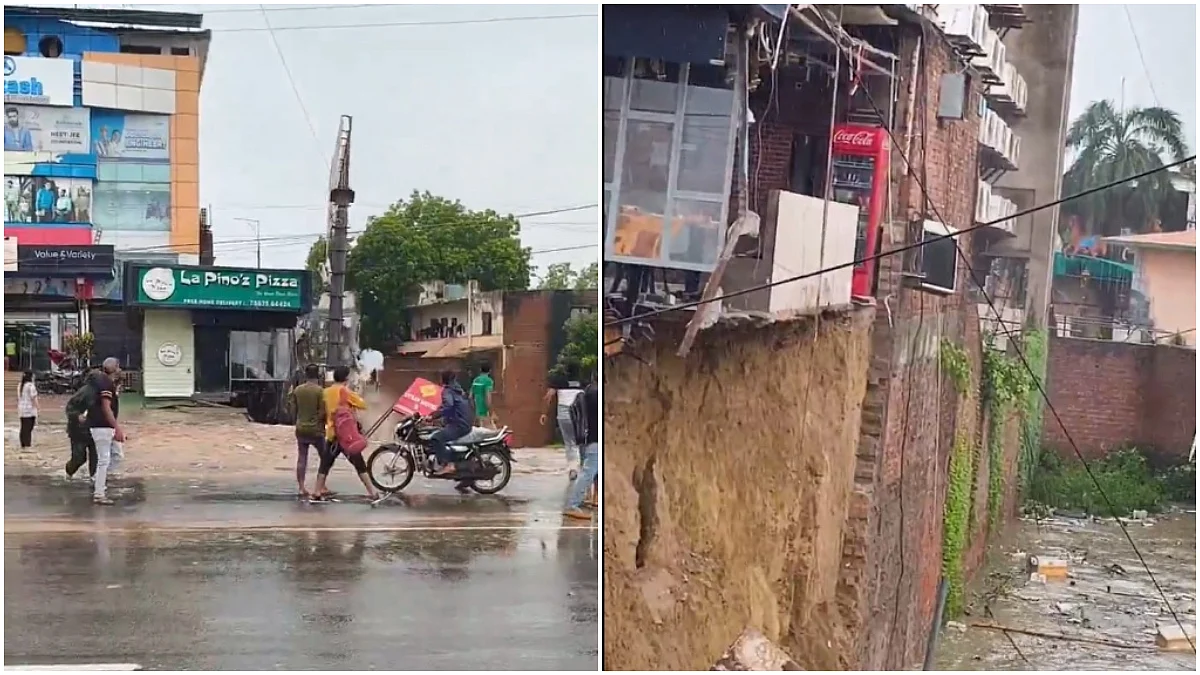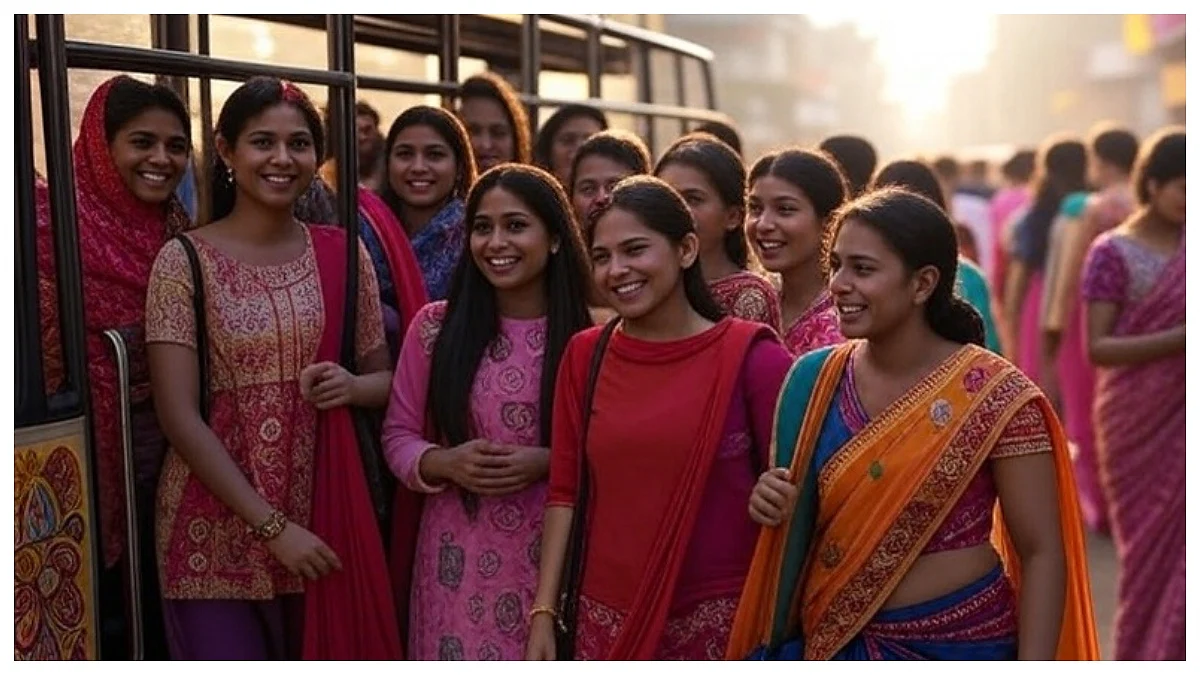In the latest episode of the Simple Hai! show, veteran finance journalist Vivek Law hosted Sundararaman Ramamurthy, Managing Director and CEO of the Bombay Stock Exchange (BSE), offering a rare glimpse into the mind of a man Law describes as an "architect of the modern stock market". As BSE celebrates its 150th anniversary, Ramamurthy shared profound insights into market evolution, investor protection and his vision for India's financial future, emphasising that "Old is not necessarily always gold".
Democratising Access and Information
Ramamurthy lauded the significant transformation in India's stock market over the past three decades, particularly the democratisation of access and information. He highlighted how technology has dissolved geographical barriers, ensuring that an individual in Mumbai, the North East, or Kashmir now has the same speed and access to information as anyone else. This is in stark contrast to earlier times when regional stock exchanges, like Chennai or Vadodara, would only offer stocks listed in their respective regions. Today, the entire nation operates on a level playing field in terms of market access and information.
Combating Uninformed Trading and Greed
Despite the advancements, a significant concern remains the prevalence of uninformed trading. Ramamurthy cited a SEBI report revealing that nine out of 10 people engaging in trading, especially in Futures & Options (F&O), lost money between FY22 and FY24. He cautioned against the "greed" that drives individuals to seek quick riches, drawing an analogy: "If you plant a mango tree, mangoes don't appear the next day; it takes five years. Everything takes time". Similarly, he stressed that investments, particularly in an index fund, require patience, typically three to four years, to yield benefits.
To counter this, BSE and SEBI are intensifying efforts to boost investor awareness and knowledge. BSE alone conducts approximately 14,000 investor awareness programs annually, reaching around 7 lakh people. These initiatives include educational videos and street plays during events like World Investor Week, all aimed at ensuring investor safety.
The Persistent Challenge of a Level Playing Field
Ramamurthy acknowledged that achieving a truly level playing field remains a work in progress. Since joining BSE two and a half years ago, he has identified several disparities:
• Margin Release Issues: Some mobile applications used by retail traders still charge margins on both sides when an investor buys on NSE and sells on BSE, despite inter-operability that should release the margin for the broker.
• Exchange Selection Restrictions: Certain apps force investors to choose a single exchange for life, or to toggle between exchanges daily, limiting their flexibility.

• Information Display Bias: Many applications prioritise one exchange's stock symbols, making it difficult for investors to compare prices across exchanges to find the best deal.
• KYC Duplication: Legally, prior to August 2024, an investor needed to complete separate KYC (Know Your Customer) procedures with the same broker for different exchanges even for the same equity market. This "unnecessary" requirement has since been changed.
• Common Contract Note: While there does not appear to be any issue for domestic and foreign institutions to trade at multiple exchanges from pre-trade and trade perspective, the lack of a single electronic contract note (ECN), with a single volume weighted average price (VWAP), hinders their trading across multiple trading venues. This limits the trading activity to one exchange even if the prices are better at a different exchange. Consequently, these institutions are not able to get best prices and best execution for their orders. Discussions are ongoing to introduce a common contract note, further simplifying processes.
• Ramamurthy confirmed that these issues are being addressed with brokers, albeit slowly, to prevent losses for their own clients.
Evolving Investors in a Digital Age
The market has transformed dramatically from 30 years ago when investors physically visited stock exchange buildings or broker offices to place orders. Today, the market is literally "in the customer's pocket," accessible with a single touch, with instant bank transfers and digital depository services. Despite this technological leap, Ramamurthy expressed regret that many investors still rely on "hearsay" rather than informed decision-making.
Unlocking the Potential of SMEs
A key mission for BSE is to significantly increase the listing of Small and Medium Enterprises (SMEs). India boasts over six crore SMEs, contributing substantially to exports, GDP and employment generation, yet only around a thousand SMEs are listed across both exchanges. Ramamurthy envisions this number reaching at least 6,000 in the next decade.
He explained that while SMEs are "Subject Matter Experts" in their businesses, they often lack knowledge in corporate governance and finance necessary for listing. The process of bringing them to market is akin to finding "diamonds" amidst many "stones.". To prevent bad companies from tarnishing the market's reputation, BSE is tightening regulations, refining its due diligence, and crucially, leveraging technology.
BSE has developed an AI system, combining Large Language Models (LLM) and Generative AI, to process Draft Red Herring Prospectus (DRHP) documents from SMEs. This system generates four types of reports in just 20-30 minutes, a task that previously took a human analyst three to four weeks. These reports include:
1. SEBI compliance checklist.
2. BSE's internal checklist.
3. A list of further questions for the company, based on details like Offer for Sale (OFS) percentage, promoter changes, preferential issues, and related party transactions.
4. Public domain checks for any past actions by enforcement agencies (ED, CBI) or reports of fraud related to the company or its promoters.
This expedited process is crucial for bringing more SMEs to the market, which Ramamurthy believes is "mandatory" for India to achieve a $50 trillion market capitalisation as part of its "Viksit Bharat 2047" vision.
Global Competition and "Customer Delight"
Ramamurthy emphasised that market competition is no longer just national; it's global. He cited the example of Dubai, where 4.32 million Indians reside, and a significant portion of their earnings (85% after repatriation to India) is invested elsewhere, not necessarily in India. This highlights the need for Indian exchanges to be globally competitive to attract these investments.
BSE's strategy and tagline for the coming years is "Customer Delight" (Prasannit Grahak). Ramamurthy broadly defines "customer" to include not just brokers and their investors, but also regulators, the board, and even employees. He believes that "if you want to survive, you have to keep pace with the world" by understanding and delivering what customers need within the bounds of law. BSE's vision extends to attracting global investors to India and facilitating Indian residents' trading in foreign products through BSE.
A Journey Fuelled by Selfless Purpose
Sharing insights from his middle-class upbringing in Tamil Nadu, Ramamurthy recalled weekends spent queuing for rationed sugar. His career path saw him transition from an Indian Overseas Bank clerk to a Probationary Officer at the State Bank of India, then joining IDBI (the institution that birthed NSE). Despite a higher salary at SBI, he chose IDBI, drawn by the idea of developmental finance and contributing to nation-building. After a successful tenure at NSE, and then 8 years as Country CEO for Bank of America, he took on the leadership of BSE, viewing it as a "God-given opportunity" to bring about necessary change, free from personal gain or ambition.
Ramamurthy expressed his commitment to making BSE vibrant and his hope that his story will inspire young people in India to work diligently for the betterment of society.











